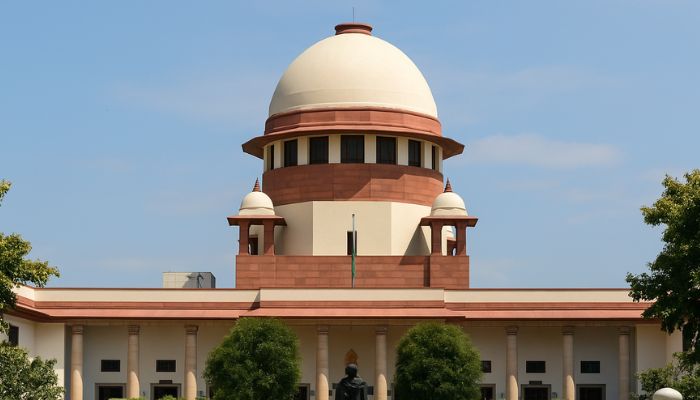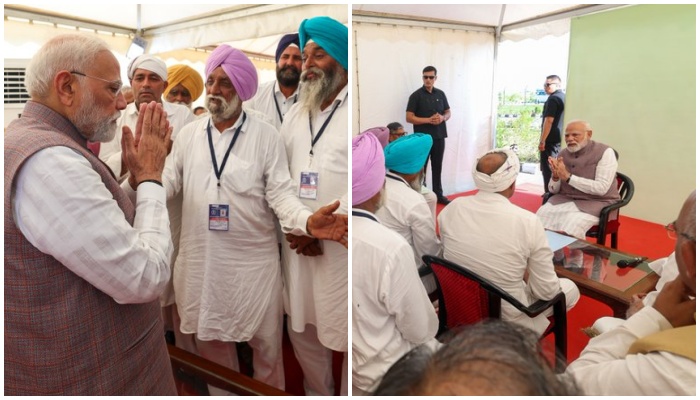Supreme Court quashes false rape case filed by a woman, frames four-step test for HCs to quash frivolous complaints
In a recent ruling, the Supreme Court quashed a criminal case involving allegations of rape on the false promise of marriage. The court noted that continuing proceedings in this case would amount to a gross abuse of judicial process. While dismissing the case, a bench comprising justices JB Pardiwala and Sandeep Mehta on Wednesday (10th September), said that there is a “clear distinction between rape and consensual sex”. In the present case, the woman filed a complaint against the man after four years, and did not give any explanation for the delay in doing so. The court noted that her allegations were vague, details regarding the alleged offences, even basic information like dates and places were not satisfactorily clear. “…the complaint doesn’t inspire any confidence… There is no good explanation offered why it took four years for the complainant to file a case,” the court noted. The Supreme Court was hearing an appeal against a 2019 order of the Allahabad High Court, which denied quashing criminal proceedings against the accused. The case stemmed from the complaint filed by a woman who accused the man rape, unnatural sex, assault and caste atrocity against the accused in 2014 for alleged incidents dating back to 2010. The case filed by the woman came across a vindictive since the court noted that the accused man’s parents were also made parties, along with unrelated charges. Moreover, independent evidence was produced by the woman to back her allegations against the accused. In addition, the court noted that the complainant refused to accept notice issued by the Supreme Court. The court opined that the complainant was not serious about the case and this move of hers further undermined her credibility. The Supreme Court bench also highlighted that the Additional Chief Judicial Magistrate committed an error by issuing summons. Similarly, the Allahabad High Court also failed to exercise its inherent powers under Section 482 of the Code of Criminal Procedure. “The Magistrate committed an error in passing the summoning order. The High Court too overlooked relevant aspects while rejecting the Section 482 application,” the bench said, adding that the High Courts should intervene to avert misuse of criminal process when complaints are frivolous and vindictive. The apex court stated that the courts must carefully assess the accusations of sexual abuse made on the promise of marriage. The court added that if the accused person never intended to marry and made a false promise with sexual intentions, such “conduct would amount to cheating or deception.” The court further stressed that false complaints of sexual assault against men not only tarnish their image but also amount to an abuse of legal process. “It is by now well settled that summoning any person on the basis of a frivolous or vexatious complaint is something very serious. This would tarnish the image of the person against whom false, frivolous and vexatious allegations are levelled,” the court ruled. The Supreme Court also laid down guidance for high courts handling petitions under Section 482 of the Code of Criminal Procedure (now Section 528 of the Bharatiya Nagarik Suraksha Sanhita). The court framed a four-step test to examine if criminal proceedings should continue or be quashed. First the court needs to be convinced that the accused’s material is flawless and beyond doubt. If accepted, it must then determine whether the evidence is enough to undermine the core of the claims and convince a reasonable person that they are untrue. Third, the court should take into account whether the material that has been put on record has been denied by the complainant or the prosecution, or if it is of a type that cannot be justifiably disputed. Fourth and last, the High Court has to decide whether permitting the proceedings to go forward would constitute a misuse of the legal process and not further the goals of justice. Notably, with the rise in cases of false rape cases being filed due to failed relationships or the breach of promise of marriage, the Indian courts are now exercising caution in entertaining such cases. In August, the Uttarakhand High Court dismissed false rape case filed against a minor boy. In June this year, a court in Lucknow sentenced a woman named Rekha Devi to 7.5 years in jail for falsely accusing two men of raping her and for offences under the SC/ST Act.



In a recent ruling, the Supreme Court quashed a criminal case involving allegations of rape on the false promise of marriage. The court noted that continuing proceedings in this case would amount to a gross abuse of judicial process.
While dismissing the case, a bench comprising justices JB Pardiwala and Sandeep Mehta on Wednesday (10th September), said that there is a “clear distinction between rape and consensual sex”.
In the present case, the woman filed a complaint against the man after four years, and did not give any explanation for the delay in doing so. The court noted that her allegations were vague, details regarding the alleged offences, even basic information like dates and places were not satisfactorily clear.
“…the complaint doesn’t inspire any confidence… There is no good explanation offered why it took four years for the complainant to file a case,” the court noted.
The Supreme Court was hearing an appeal against a 2019 order of the Allahabad High Court, which denied quashing criminal proceedings against the accused. The case stemmed from the complaint filed by a woman who accused the man rape, unnatural sex, assault and caste atrocity against the accused in 2014 for alleged incidents dating back to 2010.
The case filed by the woman came across a vindictive since the court noted that the accused man’s parents were also made parties, along with unrelated charges. Moreover, independent evidence was produced by the woman to back her allegations against the accused.
In addition, the court noted that the complainant refused to accept notice issued by the Supreme Court. The court opined that the complainant was not serious about the case and this move of hers further undermined her credibility.
The Supreme Court bench also highlighted that the Additional Chief Judicial Magistrate committed an error by issuing summons. Similarly, the Allahabad High Court also failed to exercise its inherent powers under Section 482 of the Code of Criminal Procedure.
“The Magistrate committed an error in passing the summoning order. The High Court too overlooked relevant aspects while rejecting the Section 482 application,” the bench said, adding that the High Courts should intervene to avert misuse of criminal process when complaints are frivolous and vindictive.
The apex court stated that the courts must carefully assess the accusations of sexual abuse made on the promise of marriage. The court added that if the accused person never intended to marry and made a false promise with sexual intentions, such “conduct would amount to cheating or deception.”
The court further stressed that false complaints of sexual assault against men not only tarnish their image but also amount to an abuse of legal process.
“It is by now well settled that summoning any person on the basis of a frivolous or vexatious complaint is something very serious. This would tarnish the image of the person against whom false, frivolous and vexatious allegations are levelled,” the court ruled.
The Supreme Court also laid down guidance for high courts handling petitions under Section 482 of the Code of Criminal Procedure (now Section 528 of the Bharatiya Nagarik Suraksha Sanhita). The court framed a four-step test to examine if criminal proceedings should continue or be quashed.
First the court needs to be convinced that the accused’s material is flawless and beyond doubt.
If accepted, it must then determine whether the evidence is enough to undermine the core of the claims and convince a reasonable person that they are untrue.
Third, the court should take into account whether the material that has been put on record has been denied by the complainant or the prosecution, or if it is of a type that cannot be justifiably disputed.
Fourth and last, the High Court has to decide whether permitting the proceedings to go forward would constitute a misuse of the legal process and not further the goals of justice.
Notably, with the rise in cases of false rape cases being filed due to failed relationships or the breach of promise of marriage, the Indian courts are now exercising caution in entertaining such cases. In August, the Uttarakhand High Court dismissed false rape case filed against a minor boy. In June this year, a court in Lucknow sentenced a woman named Rekha Devi to 7.5 years in jail for falsely accusing two men of raping her and for offences under the SC/ST Act.























































































































